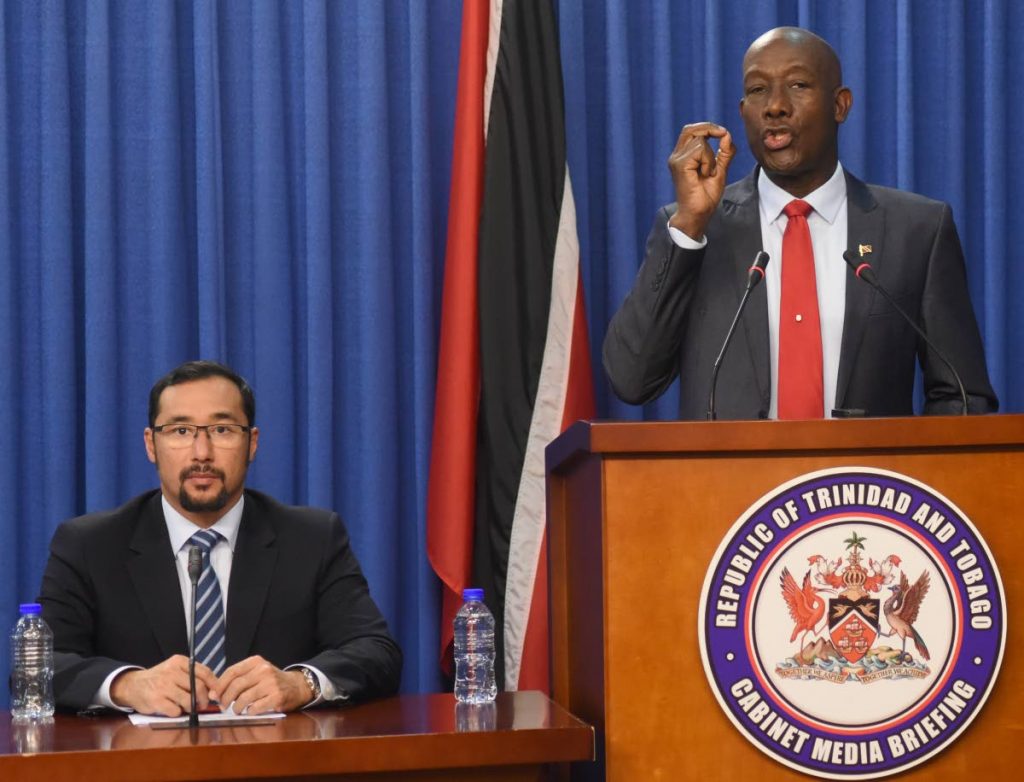Africans can register

The Prime Minister has extended an amnesty to African nationals detained at the Immigration Detention Centre (IDC), similar to that offered to Venezuelans who have breached immigration laws.
“I intend to ask the Minister of National Security (Stuart Young) to bring to the National Security Council an assessment of who we have in the IDC, particularly Africans, whom we have not been able to deport because we have not been able to pay the humongous cost of transporting a detainee from Trinidad to Ghana or Nigeria.
"There are not too many. I will ask (Young) to use his authority to bring some relief to these people,” Dr Rowley said.
The offer is conditional on there being no other overriding reason aside from illegal entry or overstaying entry, he added.
The news was welcomed by activist Khafra Kambon, who acknowledged that, while there were not a lot of Africans detained at the IDC, the issue was the length of time they were confined.
As of December 2018, according to a February report submitted to a parliamentary joint select committee on the treatment of detainees at the facility, a Nigerian national who was first admitted in October 2013, has spent the longest time detained.
The cost of repatriation is usually borne by the country deporting the detainee. Detainees also need to have three escorts. According to the report, the average cost to repatriate one Nigerian would cost the state nearly $240,000. The Immigration Division, a department of the National Security Ministry spent $9 million on repatriation from 2012-2016, including a $2.48 million to charter an aircraft to Nigeria in 2015.
As of April 2018, the IDC held 25 people from African countries who lacked travel documents to be repatriated. Last July, then-national security minister Edmund Dillion had met with Nigerian High Commissioner Ganiyu Adekunle Adeyemi to discuss three proposals in an effort to expedite the repatriation of the Nigerians. Options to fund the trip included getting detainees or their relatives to pay for their tickets; assistance from the Nigerian government; or the TT Government footing the bill.
It is unclear if the deportation took place, but latest reports suggested the main hold up was accessing travel documentation.
The IDC’s capacity is 150, and as of February 2019, there were 146 detainees – 110 men and 36 women. The capacity can go up to 200, but conditions would be cramped. Nearly 2,000 people are on “orders of supervision” because of the overflow, Chief Immigration Officer Charmaine Gandhi-Andrews told the JSC in February. Some simply did not report for monitoring, she added.
Ghandi-Andrews did not respond to Newsday’s calls for further comment on the current capacity and nationalities of detainees.
Newsday also asked Young if he had, as yet, received any statistics from the IDC. He responded: “I will be ascertaining this data so that I can make the necessary recommendations to the National Security Council.”
When contacted, Kambon said, “We have been pointing out for years Africans from the continent and then Haiti (have been unfairly treated by Immigration.) It’s good if a change in attitude is taking place.
"The contrast in treatment really disturbs the mind of (how) people of African descent have been treated. Hopefully action will follow words and clear scars on the reputation of TT.”
The amnesty will coincide with next week’s state visit from Ghanaian President Nana Addo Dankwa Akufo-Addo. The president will meet with his TT counterpart, President Paula Mae-Weekes, and Rowley, a release from the Ministry of Foreign Affairs said. Discussions will focus on energy, health, finance, education, tourism and culture, building on Rowley’s visit in May 2016.
The Venezuelan registration and amnesty will continue until June 14.

Comments
"Africans can register"